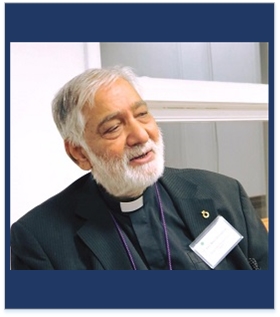INTERFAITH



Religions are negatively perceived by many as leading to intolerance and extremism. As Muslims, we need to better communicate religious life to the world to spark an interest in coexistence and bridge-building among all faith communities. Coexistence in the Islamic and world history is nothing new. The Muslim holy book, the Quran says:
“Those who believe (in the Qur’an), and those who follow the Jewish (scriptures), and the Christians and the Sabians,- any who believe in Allah and the Last Day, and work righteousness, shall have their reward with their Lord; on them shall be no fear, nor shall they grieve.” [Quran 2:62 from The Meanings Of The Holy Qur’an by Abdullah Yusuf Ali].
“Those who believe (in the Qur’an), those who follow the Jewish (scriptures), and the Sabians, Christians, Magians, and Polytheists,- Allah will judge between them on the Day of Judgment: for Allah is witness of all things..” [Quran 22:17 from The Meanings Of The Holy Qur’an by Abdullah Yusufali].
As these Quranic verses demonstrate, we can have different theologies, yet do good work that’s not only acknowledged by God, but also handsomely rewarded. Thus, as faith communities we have to work together towards the common good of our society and fellow beings; to protect the environment, to shelter the homeless, to feed the hungry, to support the weak, and to secure the fearful. This is interfaith dialogue at its best. This is interfaith through action. This is diapractice.
There are many examples in the Islamic history of interfaith relations. Here are a few:
- Upon his conquest of Jerusalem, Umar ibn Al-Khattāb (second Caliph) wrote to its non-Muslim inhabitants: “you are guaranteed your life, your homes, your religious institutions, so long as you don’t take up arms against the state.”
- According to Jewish tradition, Umar set aside the Christian ban on Jews and allowed them into Jerusalem and to worship. [Dubnow, Simon (1968). History of the Jews: From the Roman Empire to the Early Medieval Period 2. Cornwall Books. p. 326. ISBN 9780845366592].
- Ali ben Abu-Taleb (the fourth Caliph and son-in-law of the Prophet Muhammad) wrote the following in a letter to Governor of Egypt, which was a majority Christian state: “ treat them with mercy and forgiveness for they fall into two categories of people, either they are your brothers in faith OR they are your EQUAL in creation (humanity). So forgive and overlook.”
In light of the bright Islamic history on interfaith relations, our organzaition is committed to interfaith dialogue and understanding through joint action with other faith communities to benefit our society and fellow beings. We strongly believe in the statement of the bishop of the Episcopal Diocese of Connecticut, the Rt. Rev. Ian T. Douglas, when he said: “when we come into conversation with the religious ‘other’ it helps us to speak even more clearly about our own faith…”
We are actively pursuing interfaith partnerships with other churches and faith communities. Please email us at info@fvamc.org if you’d like to join our interfaith efforts.
